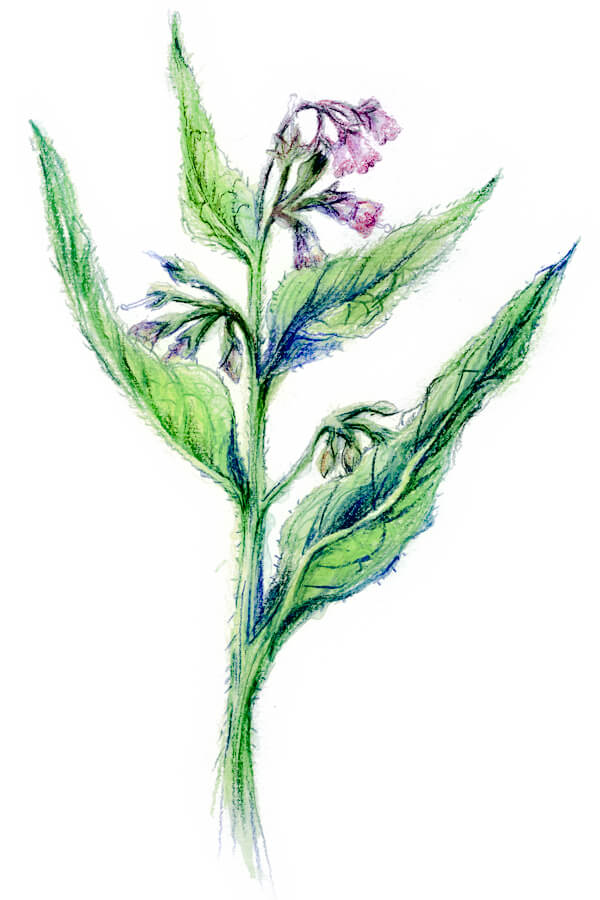
Common comfrey
COMMON NAMES: BLACK ROOT, KNIT BONE, BONESET, CONSOUND, BRUISE WORT. COMFREY WAS THE MAIN EQUIPMENT OF THE GREEK AND ROMAN “WAR BONESETTERS” (IT BRINGS THE FLESH TO GROW).
____________
In the Middle Ages, comfrey was commonly used to cure bone fractures, which gave rise to its common name. Grated roots were used in the same way as plaster today. The root mash sets as quickly as plaster. For thousands of years it was used for fractures, bruises, sores, scratches … it was passed on that if an animal cut to pieces was boiled with comfrey, it would jump out of the kettle and run away. In the past, comfrey baths were also popular before marriage to restore the hymen returning so the “virginity”.
Its major importance consists in its external application. It is used in the form of a compress for bruises, venous inflammations, chronic diseases, gout and varicose veins. It helps bone fracture union as well as healing of wounds, swellings, ulcers and haemorrhages. Comfrey encourages the healing tissue production, however it should not be used for deep wounds as it accelerates the surface healing before the wound is able to heal inside, which can cause abscess formation. In herbalism it is widely recommended for open varicosities and crural ulcers. It is also used as tincture or in the form of healing oils.
The root is more effective.
Effective substances:
Allantoin, asparagine, laziocarpine, methylpyrinine, essential oils, tannins, a number of other alkaloids.
Abilities of herb:
- Improve blood circulation
- Stimulate regeneration
- Speed up healing of swellings
- Soothe aching joints and ligaments
- Stimulate broken bone regeneration


























